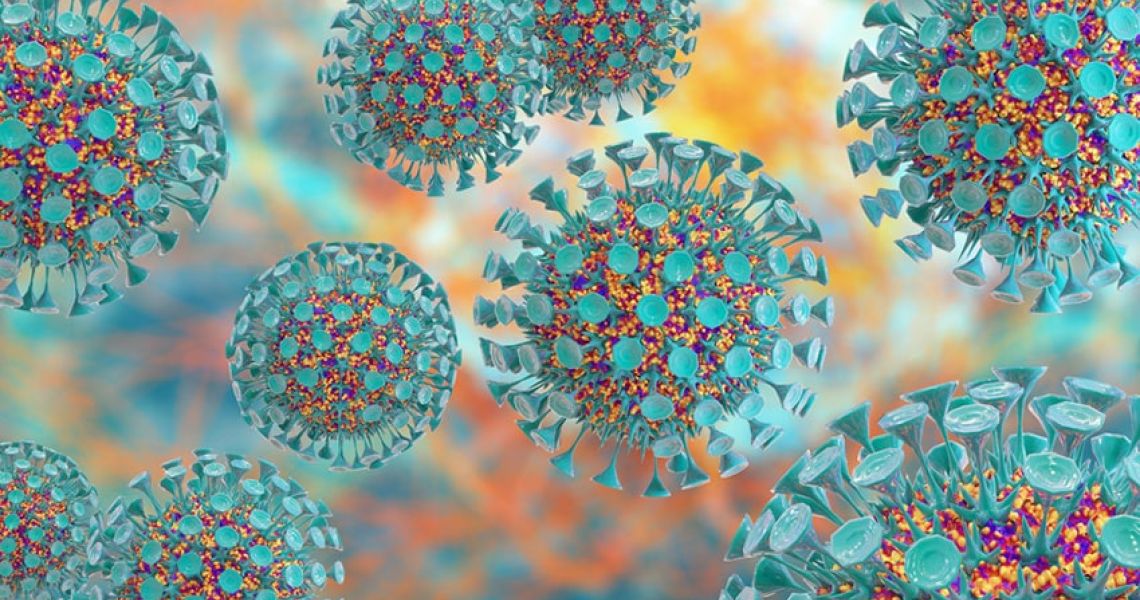The District of Columbia Clinical Trials Unit (DC CTU), a collaboration between the George Washington University (GW) and Whitman Walker Institute (WWI), was selected by the National Institute of Allergy and Infectious Diseases (NIAID) as one of 35 HIV CTUs based at both U.S. and international institutions. The $8.4 million, seven‐year NIAID award is part of a significant investment in infrastructure and expertise in support of HIV/AIDS clinical trials, and establishes the DC CTU as a regionally focused clinical research unit designed to address the HIV epidemic in the nation’s capital.
The DC CTU is led principal investigators Manya Magnus, PhD, MPH, professor and associate chair of the Department of Epidemiology at the Milken Institute School of Public Health at GW; Gary Simon, MD, PhD, professor and vice chair of the GW School of Medicine and Health Sciences (SMHS) Department of Medicine, and director of the Division of Infectious Diseases at The GW Medical Faculty Associates (GW MFA); and Sarah Henn, MD, MPH, chief medical officer for Whitman Walker Health (WWH).
“Achieving a durable end to the HIV pandemic will require continued development of new HIV prevention and treatment strategies, as well as optimal implementation of existing tools,” said NIAID Director Anthony S. Fauci, MD, in a statement announcing the grants. “The new network structure will increase the efficiency and effectiveness of NIH’s HIV clinical trial operations to expediently address the critical research questions that will bring us closer to this goal, while always ensuring the safety of clinical trial participants.”
According to the NIAID, the streamlined network structure will reduce administrative and oversight costs, allowing more funds to be allocated to clinical trials to advance four key areas of research emphasis: HIV prevention; HIV vaccines; HIV/AIDS adult therapeutics; and HIV/AIDS maternal, adolescent, and pediatric therapeutics. The 35 CTUs will provide scientific and administrative expertise, as well as the infrastructure to conduct clinical trials within the networks. Collectively, the CTUs will support 101 clinical research sites in 18 countries across North America, South America, Africa, and Asia.
“Our new award is an infrastructure grant that will link GW and WWI under a larger umbrella in order to provide access to cutting‐edge HIV prevention and treatment clinical trials in the DC metropolitan area,” said Magnus. “It’s a tremendous partnership and I think that we hopefully will be beneficial to each other and help each other, and further science throughout the district.”
The DC CTU builds upon the success of both the GW HIV Prevention Trials Network (HPTN) site and the WWH AIDS Clinical Trials site, as well as longstanding collaborations between the organizations through the DC Center for AIDS Research (DC CFAR), which Magnus calls a “critical foundational component for much of the research we are conducting.” The collaboration between academic and community health partners will leverage an extensive history of community collaboration, as well as numerous public health and academic partnerships and contribute to trials that will eventually help end the HIV epidemic.
In Washington, D.C., more than 12,000 residents are living with HIV/AIDS (1.8% of the overall population) and 2.7% of the African‐American population are living with HIV according to a DC Health report.
The DC CTU team has identified several key objectives for the unit, chiefly providing scientific leadership and administrative infrastructure to support high‐quality therapeutic and prevention studies at GW and the WWI. The unit will also implement best practices to aid the continued recruitment and retention of top‐quality researchers, as well as support participant safety and laboratory, pharmacy, data, and regulatory excellence. Community engagement is a critical mission to ensure diversity among participants. To accomplish those goals the unit will collaborate closely with investigators from the DC CFAR, GW, WWH, and, most importantly, the local community to address NIAID and network priorities.
“The bottom line, from a research and care point of view, is that things don’t change a whole lot,” said Simon. “[D]epending on the trial, the money will flow through the CTU, and then to the different respective clinical sites.
However, Simon explained, how the grant dollars are disbursed to the trial sites and the resources available to those projects will change, creating greater collaborative opportunities. “For instance, some funds will go to Milken Institute SPH to support data management, while other funds will be directed toward WWH their clinical operations, and some will go to the GW MFA for clinical operations.”
“For us, as a community health center, with the resources that GW offers,” added Henn, “we can continue to strengthen that relationship and grow in a way that was difficult working under two different CTUs. … We’ll be able to collaborate and have a larger mass of patients within certain clinical trials. That’s pretty exciting.”
In addition to HIV‐related clinical trials, the DC CTU will continue to conduct COVID‐19 Prevention Trials Network activities at both sites, such as the Phase III Moderna vaccine trial at GW, led by David Diemert, MD, professor of medicine at SMHS and a physician in the Division of Infectious Diseases at GW MFA; and a broadly neutralizing monoclonal antibody prevention study and ACTIV-2, an outpatient treatment study against SARS-COV-2, led by Henn at WWI.
GW and WWH have maintained a long‐running partnership, working together on a wide array of projects, and with the rise of the pandemic that relationship has only grown to include COVID‐19 research and community engagement, said Magnus, but the two institutions were involved in separate CTUs in the past and there wasn’t the infrastructure necessary to anchor that partnership and share resources.
“With our new DC CTU,” Magnus said, “we can work together to enhance community engagement across the city. … We have the ability to give people access to innovative and highly impactful clinical trials that they may not have even known existed.”



